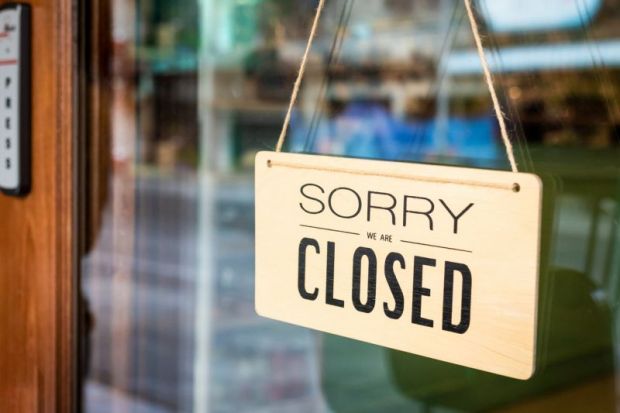Australia’s higher education regulator has made major progress in its war against essay mills, shutting down dozens of alleged academic cheating websites after negotiating a cooperative arrangement with the communication industry’s professional association.
The Tertiary Education Quality and Standards Agency (Teqsa) said it had blocked Australian access to 40 websites which were collectively attracting almost half a million visits every month.
While Teqsa monitors almost 600 suspect websites, it said the 40 it has targeted were easily the biggest and commanded around two-thirds of the traffic. “Blocking these websites will seriously disrupt the operations of the criminals behind them,” said federal education minister Jason Clare.
The move represents a major escalation of Teqsa compliance action under anti-cheating legislation introduced in 2020. Last October the agency obtained a federal court order requiring Australian telecommunications companies to block access to two websites thought to be operated by an Indian syndicate.
This time, Teqsa has been able to jam 20 times as many websites without any need for court action thanks to new “protocols” negotiated with Australia’s major internet service providers (ISPs) through their representative association.
Helen Gniel, director of Teqsa’s Higher Education Integrity Unit, said the 2021 experience had served as a test case by demonstrating “what sort of evidence would satisfy a court”.
Under the protocols, which were finalised in June, Teqsa must demonstrate that the websites are in breach of its cheating laws. This entitles it to make “lawful requests” to ISPs to “disrupt access”, a spokesman said.
The approach relies on Section 313 of Australia’s Telecommunications Act as well as anti-cheating provisions under the Teqsa Act. “Blocking these sites all at once will make an impact on the business models,” Dr Gniel said.
“It’s not a one-off request. We’ve built these relationships with the communications industry so that we can be much more nimble. We don’t need to have the delays of going through the court system. We can block them very quickly.”
She predicted that Teqsa would take similar action several times a year, typically during peak assessment periods. The agency also had the capability to thwart cheating websites that reopened with new web addresses – a common practice that leads commentators to liken the battle against essay mills to “whack-a-mole”.
“The web traffic analytics…mean that we can identify where traffic is moving to,” Dr Gniel said. “If we see a new site pop up that suddenly has all the traffic, that would go to the top of the list.”
Students who try to access the blocked sites are automatically redirected to a Teqsa page advising them how to protect themselves from cheating services and the risk of blackmail.
“You’re getting students right at the moment when they’re trying to interact with the service,” Dr Gniel said. “It’s much more targeted than general communications to students.”
She said Teqsa had separately negotiated with prominent social media platforms, including Facebook and Instagram, to remove advertisements for commercial cheating services.
Register to continue
Why register?
- Registration is free and only takes a moment
- Once registered, you can read 3 articles a month
- Sign up for our newsletter
Subscribe
Or subscribe for unlimited access to:
- Unlimited access to news, views, insights & reviews
- Digital editions
- Digital access to THE’s university and college rankings analysis
Already registered or a current subscriber?








